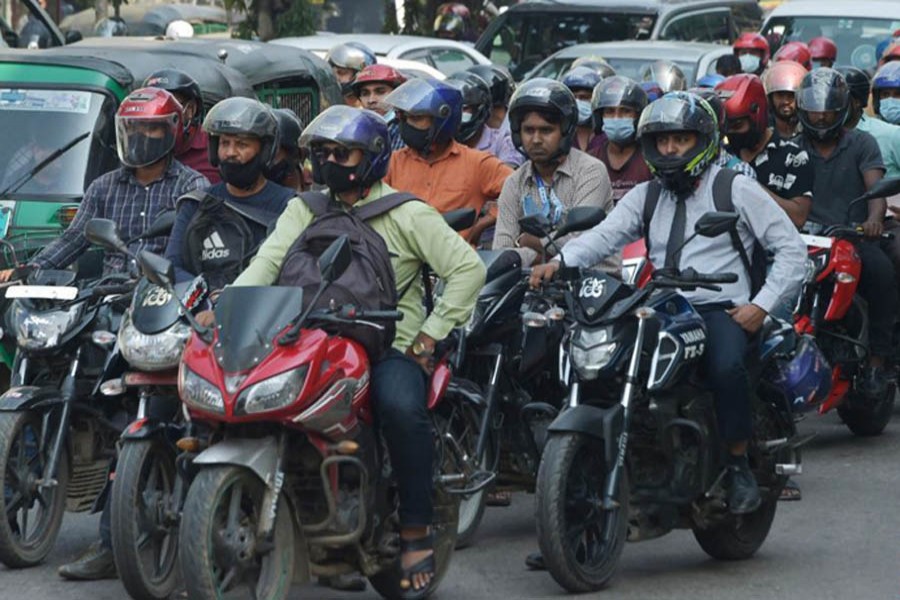
Published :
Updated :

Two-wheelers have given people an alternative to being stuck on roads for hours on end on city roads, and the freedom of movement in rural areas. While motor cycles have been the vehicle of choice in rural areas for decades, the explosion in numbers in the capital city and other urban centres has taken place after several companies started assembling them domestically in recent years. That brought down retail prices and bank credits facilitated this phenomenal growth. While this has been a boon for individuals wanting to get from Point A to Point B in the shortest possible time, it has not come without problems. The number one headache that the two-wheeler has brought is congestion on already-congested roads, but more importantly the deterioration of road safety for others and riders themselves.
The propensity to break traffic laws is extremely high in Bangladesh. Any mode of two-wheel transport is inherently unsafe because it is, literally, a balancing act. An individual sits on an engine which is resting on two wheels. Hence, the question of safety equipment, particularly, helmets is one of paramount importance. A helmet must be sturdy and flexible, to withstand the probable damage a crash may cause. Bones of arms and legs may heal with time, but a head-injury is, more often than not, fatal. This is why helmets are mandatory to be worn by a rider the world over.
While the police have been stringent in applying the law in Dhaka city, the same cannot be said so for riders countrywide. This has much to do with the excuses riders come up with not wearing it in the first place - the weather is too hot, it is cumbersome to carry around and cannot be secured to the bike (from thieves), etc. That's not the point at all. The helmet isn't a fashion accessory, it's there for a reason. People will always find excuses not to wear it, it is up to law enforcers to enforce the law. Obviously, things need to change. Why not introduce a point-based licence where people who refuse to wear a helmet start losing points and at one point the licence becomes invalid? This is something the authorities can start thinking about if it is serious about getting riders to comply with wearing helmets.
The other issue that needs to be addressed immediately is the quality of helmets for bikers. According to experts, motor bikers are "26 times more likely to die in road crashes than passengers of cars." Use of substandard helmets where cost is the only consideration has proliferated due to a lack of quality standard and certification process. These low-quality helmets are flowing in from China, India and Thailand. Bangladesh needs to have a set standard that will be overseen by one or more competent authorities.
Foreign investors should be encouraged to set up plants in one of the several special economic zones to bring their expertise to the country. Local manufacturers too should be encouraged to produce quality helmets for a market (according to the World Bank) of 800,000 to 1.0 million per annum. Those are significant numbers and one that's now entirely serviced by all manners of "helmets", bulk of which are nothing but plastic. Only when quality helmets are made available at a price point that is comfortable to consumers, will they start becoming more commonplace on our roads. That along with stringent enforcement of laws can reduce fatalities for riders and tame their overenthusiasm on roads which is causing havoc for other commuters and pedestrians.
mansur.thefinancialexpress@gmail.com


 For all latest news, follow The Financial Express Google News channel.
For all latest news, follow The Financial Express Google News channel.